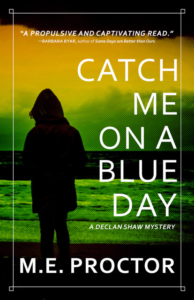Special Guest Author – Kari Lee Townsend
 Today we’re excited to welcome Kari Lee Townsend, a long time friend and national bestselling mystery author, who is going to tell us a bit about her writing process and her latest project.
Today we’re excited to welcome Kari Lee Townsend, a long time friend and national bestselling mystery author, who is going to tell us a bit about her writing process and her latest project.
Welcome, Kari! We met you at a conference many moons ago and have been friends ever since, but for our blog readers who may not know you, would you please share a little bit about yourself?
Hello! I’m Kari Lee Townsend—an upstate New Yorker at heart, from the Syracuse area where the winters are snowy, the summers are gorgeous, and the small-town charm never stops inspiring my stories. When I’m not writing, I’m usually spending time with my family, spoiling my 3 Samoyeds, traveling to lakeside towns and cozy villages for “research,” binge-watching reality TV, or designing fun graphics and reels for my books. I love everything whimsical, magical, and atmospheric…and it tends to seep right into my writing.
Now to some questions about how you got started writing, your favorite (and not so favorite) parts of it, and your process.
- What started you on your writing journey?
I’ve always been a storyteller. Even as a kid, I carried notebooks around and scribbled scenes and characters whenever inspiration struck. But the real push came when my children were young. I wanted a flexible career that allowed me to stay home with them while still doing something creative and fulfilling. Once I wrote my first book, I was hooked. I knew I had found my calling.
- What do you write? And why did you choose that genre or sub-genre?
I write paranormal cozy mysteries, fantasy cozy mysteries, suspense, contemporary women’s fiction, and romantic comedies—stories filled with heart, humor, friendship, and a dash of magic or suspense. I’m drawn to these genres because they combine everything I love: quirky characters, tight-knit communities, twisty mysteries, emotional journeys, and worlds where magic or intuition lingers just beneath the surface. I adore creating stories that feel comforting yet thrilling, with characters who grow, love, stumble, and triumph right along with the reader.
- What’s your favorite part of writing?
I love the moment when characters start talking in my head and taking on lives of their own. Worldbuilding is another favorite—crafting towns like Wishville, Divinity, Clearview, or Coldwater Cove, with their festivals, secrets, magical systems, and unique personalities. And of course, I love the “aha” moment when all the clues and twists finally click into place. All my books take place in the Northeast with the four seasons.
- And what’s your least favorite part of writing?
The first draft. I love having written…but the actual drafting can feel like pulling teeth some days. I’m also not a big fan of the technical side—formatting, timelines, and continuity checks—though they’re necessary to keep everything running smoothly, especially across multi-book series. I love connecting with readers, but promoting a book can be scary and hard.
- How much do you plan before you start a book?
I’m a hybrid. I like to plot enough to know the big turning points, emotional beats, and the overall arc of the mystery, but I leave plenty of room for spontaneity. My outlines grow and evolve as I write; they’re living documents. I need the structure, but I also love discovering surprises along the way.
- Where do your very best ideas come from?
Everywhere. Festivals, places I visit, random conversations, dreams, Pinterest aesthetics, documentaries, and little “what if?” moments. I’m constantly inspired by folklore, history, small-town quirks, and the idea that magic might be hiding in plain sight.
- What part of writing is the most difficult for you to write?
For me, it’s slowing down to write deep emotional beats—especially grief, trauma, or the darker layers of a character’s past. I also find the middle of a book to be the trickiest, because that’s where everything must escalate without giving away too much.
Thanks for sharing your thoughts with us today.
And readers, we very excited as Kari’s latest is something a little bit different. Both cozy and fantasy in all the good ways.
Kari, what can you tell us about the book?

The Well-Kept Secret, the first book in my new fantasy-cozy mystery series set in the enchanting town of Wishville, Vermont. The story follows Lyra Wells—half human, half Dweller—as she discovers her true heritage while investigating the mysterious death of a local man near the centuries-old wishing well. The book blends small-town charm, sparkling magic, a hint of romance, and a twisty mystery with deeper secrets tied to the Dweller realm of Elarion. There’s a love triangle brewing, a memory crystal connected to Lyra’s missing mother, a talking cat, a cast of quirky locals (including the delightfully chaotic Wellies), and a fragile treaty between two worlds that might unravel at any moment. It’s cozy, magical, atmospheric, and full of heart—an exciting beginning to the Wishville Mystery series. Out now.
We’ve already the first book: “The quirky town of Wishville, a delightful amateur sleuth and a police chief who’s not sure what he’s stumbled into make for an enchantingly different whodunnit. And then there’s the talking cat. I was charmed and can’t wait for the next book!” ~ Mary Lee aka Sparkle
And we don’t have long to wait! Up next is book two in the series, The Well-Laid Trap.
This time, a beloved physical therapist goes missing, and Lyra Wells—half human, half Dweller—must uncover the truth while balancing a crack in the ancient Veiled Vault, her complicated feelings for two very different men, her judgmental talking cat Vex, and the chaotic Wellies who always manage to make things interesting. It’s atmospheric, twisty, heartfelt, and full of enchantment. And it comes out January 20, 2026.
 In addition to this new series, Kari also writes two other cozy mystery series and also writes women’s fiction and suspense as Kari Lee Harmon. She is one busy lady!
In addition to this new series, Kari also writes two other cozy mystery series and also writes women’s fiction and suspense as Kari Lee Harmon. She is one busy lady!
You can find info on all her books on her website at : https://www.karileetownsend.com
And you can connect with her on social media at:
Kari, thanks so much for stopping by the blog! Great to “see” you and we hope to see you in real-life soon. Maybe at a conference?


 Today, we welcome bestselling and award-winning guest author Patricia Crisafulli. Her Ohnita Harbor Mystery Series launched in 2022 with
Today, we welcome bestselling and award-winning guest author Patricia Crisafulli. Her Ohnita Harbor Mystery Series launched in 2022 with  The Story Behind the Artifact
The Story Behind the Artifact 
 Today we welcome back the lovely and uber-talented Catriona McPherson who has stopped by to share a bit about her soon to be released book, SCOT’S EGGS. Catriona is an Agatha, Anthony, Lefty, and Macavity Award-Winning Author.
Today we welcome back the lovely and uber-talented Catriona McPherson who has stopped by to share a bit about her soon to be released book, SCOT’S EGGS. Catriona is an Agatha, Anthony, Lefty, and Macavity Award-Winning Author. And bit more about Catriona:
And bit more about Catriona:

 A Guest Post by Author M.E. Proctor
A Guest Post by Author M.E. Proctor

 Bopping in Historical Waters
Bopping in Historical Waters M.E. Proctor was born in Brussels and lives in Texas. The first book in her Declan Shaw PI series, Love You Till Tuesday, came out from Shotgun Honey, with the follow up, Catch Me on a Blue Day, scheduled for 2025. She’s the author of a short story collection, Family and Other Ailments, and the co-author of a retro-noir novella, Bop City Swing. Her fiction has appeared in Vautrin, Tough, Rock and a Hard Place, Bristol Noir, Mystery Tribune, Shotgun Honey, Reckon Review, and Black Cat Weekly among others. She’s a Derringer nominee.
M.E. Proctor was born in Brussels and lives in Texas. The first book in her Declan Shaw PI series, Love You Till Tuesday, came out from Shotgun Honey, with the follow up, Catch Me on a Blue Day, scheduled for 2025. She’s the author of a short story collection, Family and Other Ailments, and the co-author of a retro-noir novella, Bop City Swing. Her fiction has appeared in Vautrin, Tough, Rock and a Hard Place, Bristol Noir, Mystery Tribune, Shotgun Honey, Reckon Review, and Black Cat Weekly among others. She’s a Derringer nominee. Russell Thayer’s work has appeared in Tough, Roi Fainéant Press, Mystery Tribune, Close to the Bone, Bristol Noir, Cowboy Jamboree Press, Shotgun Honey, Rock and a Hard Place Press, Revolution John, Punk Noir Magazine, Expat Press, The Yard Crime Blog, and Outcast Press. He received his BA in English from the University of Washington, worked for decades at large printing companies, and lives in Missoula, Montana.
Russell Thayer’s work has appeared in Tough, Roi Fainéant Press, Mystery Tribune, Close to the Bone, Bristol Noir, Cowboy Jamboree Press, Shotgun Honey, Rock and a Hard Place Press, Revolution John, Punk Noir Magazine, Expat Press, The Yard Crime Blog, and Outcast Press. He received his BA in English from the University of Washington, worked for decades at large printing companies, and lives in Missoula, Montana.
 But I am firm about sticking to set writing hours and setting word and page count goals to keep me focused. I eliminate most distractions, and I reward myself frequently… lots of snacks!
But I am firm about sticking to set writing hours and setting word and page count goals to keep me focused. I eliminate most distractions, and I reward myself frequently… lots of snacks! Between the time I outlined Walker Prairie (2021) and when I wrote it (2024), I acquired two Alaskan Malamute sled dogs, Willett and Sibley! They seemed like the perfect lighthearted addition to Jenn and Aaron’s world, so I wrote them in, and just like in real life, they proceeded to WOO and HOWL and JUMP AROUND until they’d pretty much hijacked the book. The plot remained the same, but the adventure elements surrounding the climactic scenes changed to feature two beautiful, often-naughty, and occasionally terrifying FLOOFS (my term for fluffy goofs.)
Between the time I outlined Walker Prairie (2021) and when I wrote it (2024), I acquired two Alaskan Malamute sled dogs, Willett and Sibley! They seemed like the perfect lighthearted addition to Jenn and Aaron’s world, so I wrote them in, and just like in real life, they proceeded to WOO and HOWL and JUMP AROUND until they’d pretty much hijacked the book. The plot remained the same, but the adventure elements surrounding the climactic scenes changed to feature two beautiful, often-naughty, and occasionally terrifying FLOOFS (my term for fluffy goofs.)

 The Drowning Game has been named Best Book of 2024 by WRBH Reading Radio. “Although a difficult decision with so many good books, the winner of the 2024 WRBH Writers’ Forum Book of the Year Award is Barbara Nickless for The Drowning Game.” A huge thank you to the Writers’ Forum on WRBH!
The Drowning Game has been named Best Book of 2024 by WRBH Reading Radio. “Although a difficult decision with so many good books, the winner of the 2024 WRBH Writers’ Forum Book of the Year Award is Barbara Nickless for The Drowning Game.” A huge thank you to the Writers’ Forum on WRBH!

